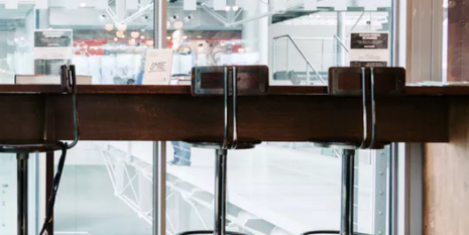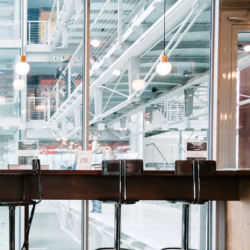To provide the best experiences, we use technologies like cookies to store and/or access device information. Consenting to these technologies will allow us to process data such as browsing behaviour or unique IDs on this site. Not consenting or withdrawing consent, may adversely affect certain features and functions.
The technical storage or access is strictly necessary for the legitimate purpose of enabling the use of a specific service explicitly requested by the subscriber or user, or for the sole purpose of carrying out the transmission of a communication over an electronic communications network.
The technical storage or access is necessary for the legitimate purpose of storing preferences that are not requested by the subscriber or user.
The technical storage or access that is used exclusively for statistical purposes.
The technical storage or access that is used exclusively for anonymous statistical purposes. Without a subpoena, voluntary compliance on the part of your Internet Service Provider, or additional records from a third party, information stored or retrieved for this purpose alone cannot usually be used to identify you.
The technical storage or access is required to create user profiles to send advertising, or to track the user on a website or across several websites for similar marketing purposes.
 The organisations and businesses leading the way in promoting their employees’ wellbeing have been honoured in a brand new awards series. The Great British Workplace Wellbeing Awards were founded last year by the Great British Entrepreneur Awards team and industry specialists Wellity Global to recognise the inspiring response of employers across the UK to the ongoing wellbeing and mental health crisis amongst the working population. (more…)
The organisations and businesses leading the way in promoting their employees’ wellbeing have been honoured in a brand new awards series. The Great British Workplace Wellbeing Awards were founded last year by the Great British Entrepreneur Awards team and industry specialists Wellity Global to recognise the inspiring response of employers across the UK to the ongoing wellbeing and mental health crisis amongst the working population. (more…)












 The writer Alan Moore believes in magic. Not hocus-pocus magic, double double toil and trouble, but in the power of words and art to change reality and bring things into existence. It’s
The writer Alan Moore believes in magic. Not hocus-pocus magic, double double toil and trouble, but in the power of words and art to change reality and bring things into existence. It’s 




 Around two thirds of professionals say they are ‘highly likely’ to leave their job this year due to a lack of face time with leaders within their organisation. Following the announcement yesterday from Government that working-from-home restrictions will be dropped, an annual employee survey from recruiter
Around two thirds of professionals say they are ‘highly likely’ to leave their job this year due to a lack of face time with leaders within their organisation. Following the announcement yesterday from Government that working-from-home restrictions will be dropped, an annual employee survey from recruiter 
 A couple of years ago, in the wake of a surge in self-care start-ups and viral diet fads, Forbes declared 2019 as the year of the
A couple of years ago, in the wake of a surge in self-care start-ups and viral diet fads, Forbes declared 2019 as the year of the 
 The last 18 months have seen unprecedented change. Covid-19 has forced people to re-evaluate every aspect of their lives, including their career. As a result, we’ve seen a surge in workers taking charge of their careers and leaving their jobs as part of the so-called Great Resignation. Recent data from the
The last 18 months have seen unprecedented change. Covid-19 has forced people to re-evaluate every aspect of their lives, including their career. As a result, we’ve seen a surge in workers taking charge of their careers and leaving their jobs as part of the so-called Great Resignation. Recent data from the 










February 23, 2022
We need a growth mindset for buildings to make them adaptable
by Matthias Rebellius • Comment, Environment, Property, Technology